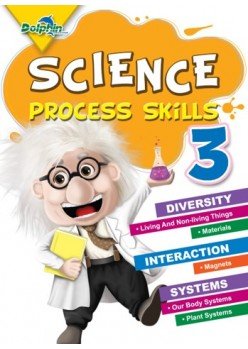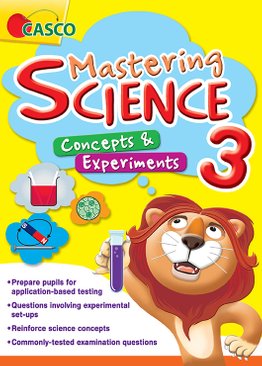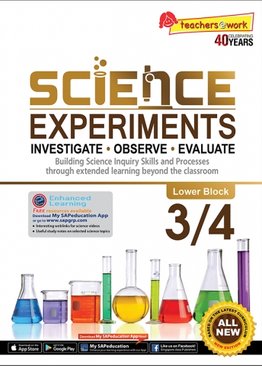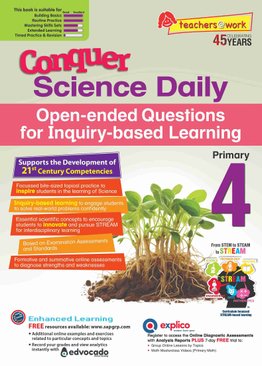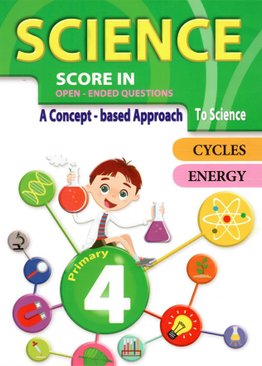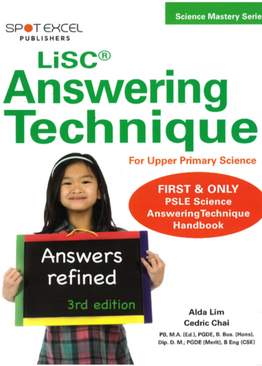Conquer Science Process Skills [Lower Block 3/4]
Many test questions call for deeper understanding of scientific concepts to be applied creatively to derive sound answers. Among other skills, students are expected to interpret data in graphical and table forms, make observations based on given contexts and draw plausible conclusions from results.
Moving Towards Process Skills-based Learning
These are the skills and processes covered in the latest Science syllabus. Every skill and process is an integral part of the total learning process of scientific inquiry.
Skills
• Observing: Use all senses to gather information, with the help of instruments.
• Comparing: Identify similarities and differences between, and among, objects, concepts or processes.
• Classifying: Group objects or events according to common characteristics.
• Use of Equipment: Understand functions and limitations of scientific apparatus and use them appropriately.
• Communicating: Receive information and transmit clearly in verbal, pictorial, tabular or graphical form.
• Inferring: Interpret data and information and explain observations.
• Predicting: Anticipate likelihood of outcomes based on prior knowledge.
• Analysing: Identify and consider patterns and relationships between, and among, objects, concepts or processes.
• Generating possibilities: Explore alternative actions and outcomes beyond the typical or preferred ones.
• Evaluating: Assess all aspects, including reasonableness, accuracy, feasibility and quality, of objects, information, processes and ideas.
• Formulating Hypotheses: Develop sound explanations for observations and events through higher-order thinking.
Processes
• Creative Problem-solving: Analyse and choose innovative and relevant solution for a given problem.
• Decision-making: Consider consequences and values based on set criteria and select solutions appropriately.
• Investigating: Formulate questions or hypotheses and devise and carry out fair methods for verification.
5 Examinable Themes, 120 Worksheets, over 200 Structured Questions Covering all 5 themes – Diversity, Cycles, Systems, Interactions, Energy – the questions are set at a higher standard to encourage students to think about a problem at a deeper level in order to solve them. The wide range of process skills based question types help students to develop critical thinking skills required to tackle such questions often encountered in important tests.
Beyond the textbook... find out more!
Students who have studied the textbooks well are rarely challenged by fact-based, straight forward questions. Within the time constraints of an important test or examination, students may find themselves in doubt of their answers to process skills-based questions. Hence, a wide range of questions are included here, to expand their knowledge, learning and understanding. Refer to the answers to learn more, perhaps the names of plants or find out more about a topic on the Internet.
Comprehensive Answers
Teachers may guide students through the worksheets after a lesson or students may attempt to work through the questions on their own. The suggested answers serve as a quick reference for teachers and facilitate easy self learning and assessment for students.
ISBN : 9789813281769
- We will not bear losses or damages on orders by normal mail option.
- No refunds or returns after purchase.
- Exchanges subject to the following:
- stock availability.
- You must contact us to raise your request within 5 working days from receipt of your order.
- Before returning or making an exchange, you are required to send us photos of the exchange products before sending out to us.
- Item to be returned must reach us within 5 working days from our email confirmation to you on the exchange arrangement.
- Item to be returned has to be in original new condition. We encourage courier or office drop-off.
- All returns are to be arranged at your own cost.
- Returns that are received damaged are not eligible for exchange
- Please see full terms & conditions
Many test questions call for deeper understanding of scientific concepts to be applied creatively to derive sound answers. Among other skills, students are expected to interpret data in graphical and table forms, make observations based on given contexts and draw plausible conclusions from results.
Moving Towards Process Skills-based Learning
These are the skills and processes covered in the latest Science syllabus. Every skill and process is an integral part of the total learning process of scientific inquiry.
Skills
• Observing: Use all senses to gather information, with the help of instruments.
• Comparing: Identify similarities and differences between, and among, objects, concepts or processes.
• Classifying: Group objects or events according to common characteristics.
• Use of Equipment: Understand functions and limitations of scientific apparatus and use them appropriately.
• Communicating: Receive information and transmit clearly in verbal, pictorial, tabular or graphical form.
• Inferring: Interpret data and information and explain observations.
• Predicting: Anticipate likelihood of outcomes based on prior knowledge.
• Analysing: Identify and consider patterns and relationships between, and among, objects, concepts or processes.
• Generating possibilities: Explore alternative actions and outcomes beyond the typical or preferred ones.
• Evaluating: Assess all aspects, including reasonableness, accuracy, feasibility and quality, of objects, information, processes and ideas.
• Formulating Hypotheses: Develop sound explanations for observations and events through higher-order thinking.
Processes
• Creative Problem-solving: Analyse and choose innovative and relevant solution for a given problem.
• Decision-making: Consider consequences and values based on set criteria and select solutions appropriately.
• Investigating: Formulate questions or hypotheses and devise and carry out fair methods for verification.
5 Examinable Themes, 120 Worksheets, over 200 Structured Questions Covering all 5 themes – Diversity, Cycles, Systems, Interactions, Energy – the questions are set at a higher standard to encourage students to think about a problem at a deeper level in order to solve them. The wide range of process skills based question types help students to develop critical thinking skills required to tackle such questions often encountered in important tests.
Beyond the textbook... find out more!
Students who have studied the textbooks well are rarely challenged by fact-based, straight forward questions. Within the time constraints of an important test or examination, students may find themselves in doubt of their answers to process skills-based questions. Hence, a wide range of questions are included here, to expand their knowledge, learning and understanding. Refer to the answers to learn more, perhaps the names of plants or find out more about a topic on the Internet.
Comprehensive Answers
Teachers may guide students through the worksheets after a lesson or students may attempt to work through the questions on their own. The suggested answers serve as a quick reference for teachers and facilitate easy self learning and assessment for students.
ISBN : 9789813281769
- We will not bear losses or damages on orders by normal mail option.
- No refunds or returns after purchase.
- Exchanges subject to the following:
- stock availability.
- You must contact us to raise your request within 5 working days from receipt of your order.
- Before returning or making an exchange, you are required to send us photos of the exchange products before sending out to us.
- Item to be returned must reach us within 5 working days from our email confirmation to you on the exchange arrangement.
- Item to be returned has to be in original new condition. We encourage courier or office drop-off.
- All returns are to be arranged at your own cost.
- Returns that are received damaged are not eligible for exchange
- Please see full terms & conditions

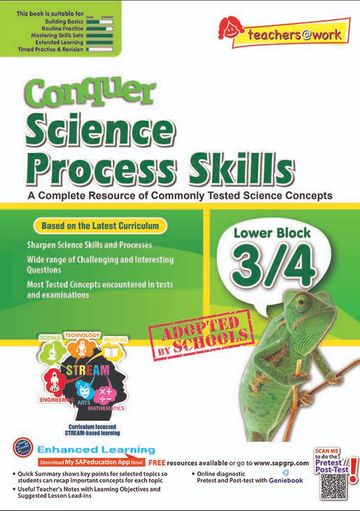
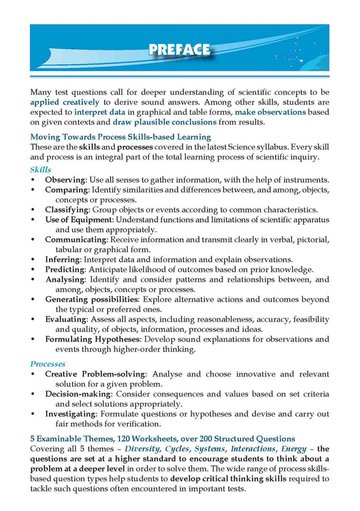
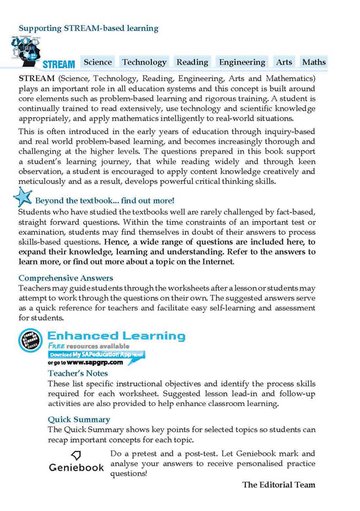
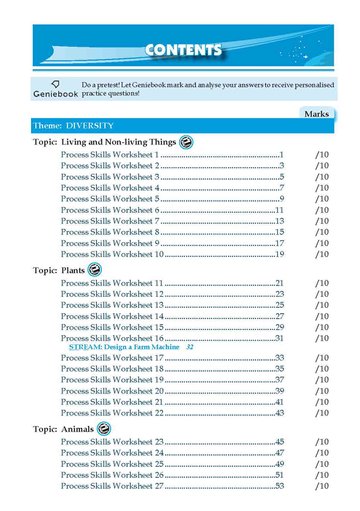
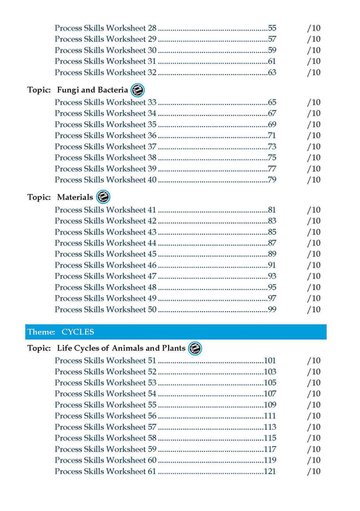
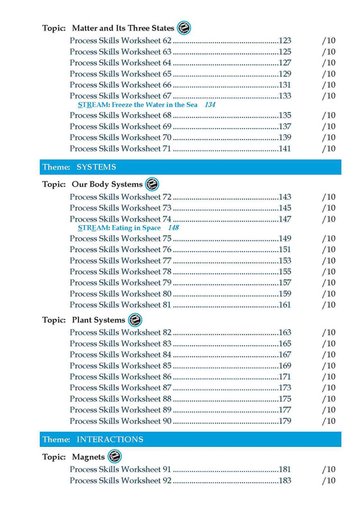
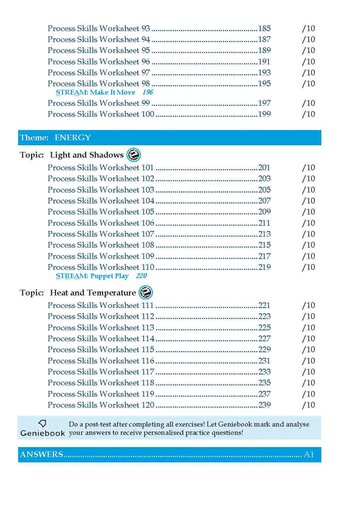
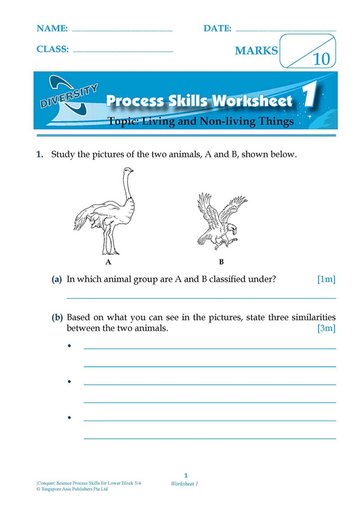
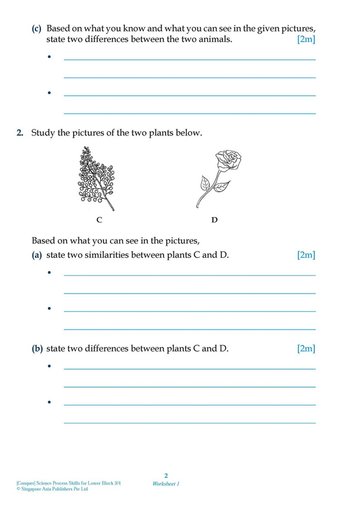
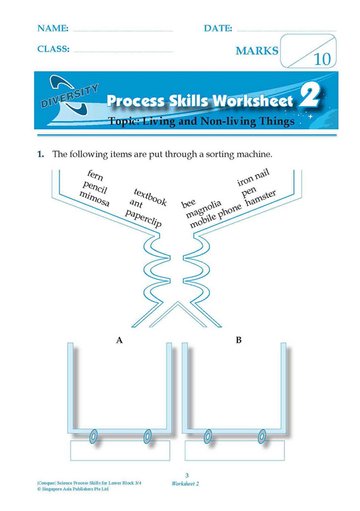
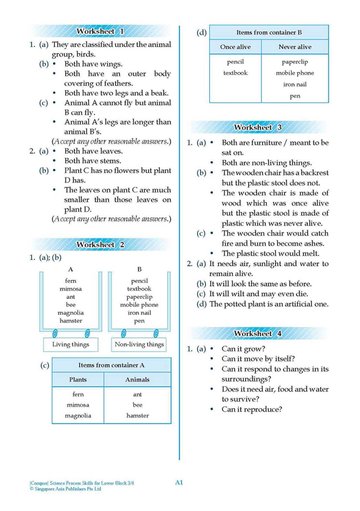











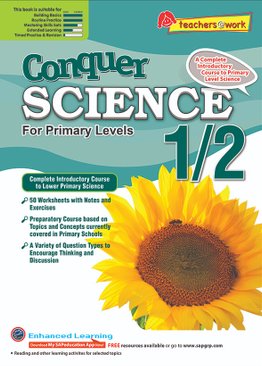
![Conquer Science Process Skills [Lower Block 3/4] Conquer Science Process Skills [Lower Block 3/4]](https://d1c2pjf7x5h5mh.cloudfront.net/sites/files/openschoolbag/productimg/202010/262x366/ConquerScienceProcessSkills341.JPG)
